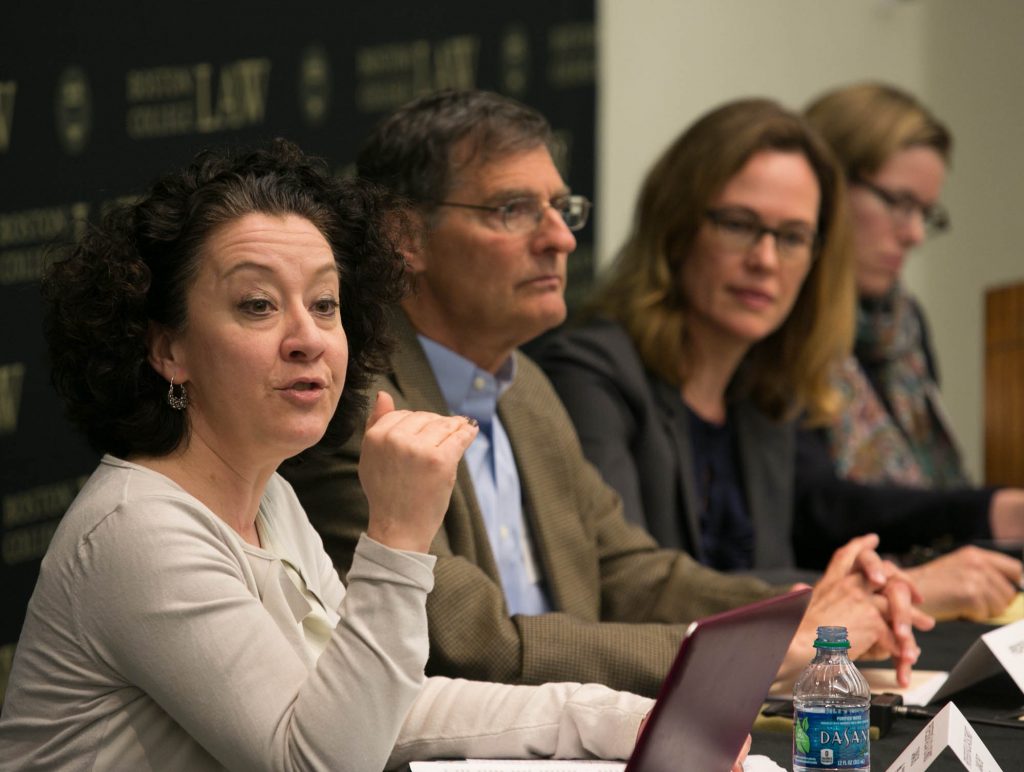On April 4, BC Law’s Rappaport Center for Law and Public Policy held a day-long conference, “State/Federal Tensions in Immigration Enforcement: Looking Back and Looking Forward.” The first panel, “Judicial Aspects,” focused on the disconnect between state and federal courts in adjudicating criminal cases and at the impact that that disconnect has on deportation decisions.
BC LawProfessor Dan Kanstroom moderated the panel of three current or former judges: the Honorable Beverly Cannone of the Massachusetts Superior Court; the Honorable Robert Cordy, a retired justice of the Massachusetts Supreme Judicial Court and current partner at McDermott Will & Emery; and the Honorable Nancy Gertner, a retired district court judge and current professor at Harvard Law School.
The panelists focused on issues in “crimmigration,” the intersection between criminal law and immigration law. Judge Gertner expressed her concerns regarding federal criminal enhancements being embedded upon a non-uniform state system, which impacts deportation consequences. “The weaknesses of crimmigration are the weaknesses of federal criminal law,” said Judge Gertner.
All the panelists agreed that there are flaws in the current system, in which federal judges make deportation decisions based solely on state conviction information. The problem is exacerbated by the fact that state and federal courts have different underlying purposes in the way they conduct criminal adjudications. Justice Cordy lamented the courts’ departure from the old system, in which deportation decisions by judges were more discretionary.
The group also discussed Padilla v. Kentucky, a case in which the US Supreme Court held that counsel who do not adequately notify clients of deportation consequences are ineffective. Judge Gertner expressed the view that Padilla was symbolic, but not practical; she explained the set of facts in Padilla are impossible to replicate, and that the decision does little or nothing to impact the fact that federal power is built upon state convictions.
Justice Cordy, while agreeing that the Padilla decision was largely symbolic, believed that the symbolic impact of Padilla was still significant because it has elevated consciousness of the state/federal issue.
The conference’s remaining two panels probed policy and legislative issues and looked at academic approaches to the dilemma. BC Law professors Karin Hong and Mary Holper moderated those panels, respectively. Scholars and refugee advocates from across the country participated.
Conference Videos
Introduction (Professor Daniel Kanstroom) and Keynote (Gov. Martin O’Malley)
Panel 1
Panel 2
Panel 3


